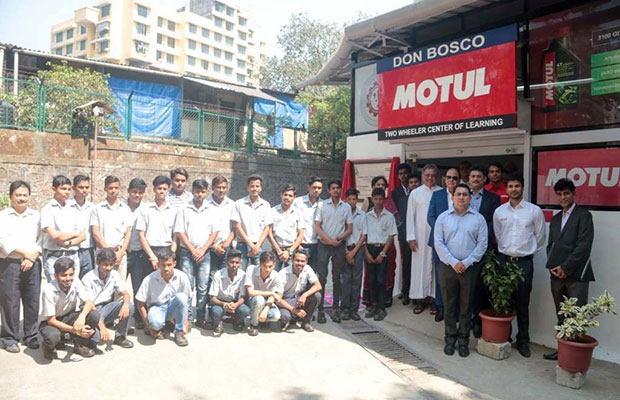
Sustainable Employment for India’s Youth
In India, a significant gap exists between the growing number of motorized vehicles on the roads, and the skilled technicians required to service and repair them. Missionaries at the Salesian-run St. Joseph’s Industrial Training Institute have forged a new partnership which promises a win-win solution to the problem.
Last October, administrators at St. Joseph’s signed a memorandum of understanding with Motul Atlantic Lubricants and Specialties, a leading manufacturer and distributor of automotive oil, grease and other supplies. Together, the two will establish a 1,100 square-foot training site in Mumbai where students can learn to maintain motorcycles and scooters. Youth who enroll in the year-long intensive training program will apprentice at authorized service centers throughout the city, and graduate with in-demand skills that qualify them for employment.
“This partnership will help address the rise in youth unemployment in Mumbai, by providing targeted training opportunities to students eager to learn and by supplying a pool of talented professionals to employers who need those very skills,” says Father Mark Hyde, director of Salesian Missions. “It’s a model that has worked time and again in India, and around the world.”
In fact, Salesian missionaries have already established 14 similar arrangements in India—most recently with Tata Hitachi, one of the country’s premier mining, construction and agricultural machinery manufacturers. As a result, St. Joseph’s Industrial Training Institute is now the first site to offer a “dealer service induction training program,” which prepares aspiring assembly technicians over 65 intensive days.
The program offers career development support for new trainees, and successful graduates are guaranteed to earn professional certification and employment at Tata Hitachi.
“Youth who do not have access to education and employment training are at much greater risk for labor exploitation,” says Fr. Mark. “As a result, they become caught in an endless cycle of poverty. Programs like these offer a viable way to break that cycle, once and for all.”
Our mission trains impoverished youth for long-term, sustainable employment. What’s your mission?

